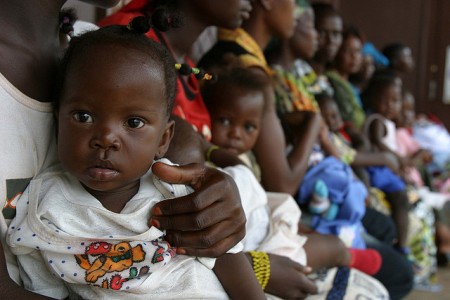
A mere two weeks after World Polio Day, a fast moving polio outbreak has struck three central African countries. The first confirmed re-appearance of the disease was reported on 4 November in the Republic of Congo (also known as Congo-Brazzaville), but the disease then quickly spread to both the Democratic Republic of Congo and Angola. Within a week, the UN reported 226 infections and 104 deaths, with numbers rising quickly.
Polio is a contagious viral disease that attacks the body’s nervous system. Left untreated, polio can cause paralysis and death. It strikes children and young adults of both sexes equally. Usually, however, less than 10 percent of cases actually develop symptoms, and only 1 percent of these remain permanently paralyzed. This particular outbreak, meanwhile, is proving past medical statistics wrong.
According to the joint communiqué released by the World Health Organization (WHO) and the UN Children’s Fund (UNICEF), the rate of mortality for the current outbreak is alarmingly high. This has spurred the government in Brazzaville and numerous international agencies to launch a large-scale emergency vaccination campaign, which is to begin today. The vaccination drive is supposed to provide vaccinations to 3 million children and adults in central Africa.
Over the last decade, the number of polio cases reported annually had ground to a virtual standstill. Nigeria, for example, long considered to be Africa’s polio hot spot, had an impressive 98 percent drop in cases since 2009. International health authorities are therefore still musing on the causes of last month’s outbreak. It seems that the immunity of the children, teenagers and young adults in the region may have been lower than expected. Furthermore, today’s virus seems to be of a relatively new Indian strain that was first found in Angola in 2007 and which now slowly found its way further north.
Although the current outbreak may be considered an unexpected setback in what can otherwise be considered a fairly successful fight against the disease, we must never become complacent. As promised time and time again, polio must be made history.
The ISN holds an excellent set of resources on infectious diseases, epidemics, pandemics, and disease control. In addition, the ISN Digital Library also offers a comprehensive list of international health organizations.

